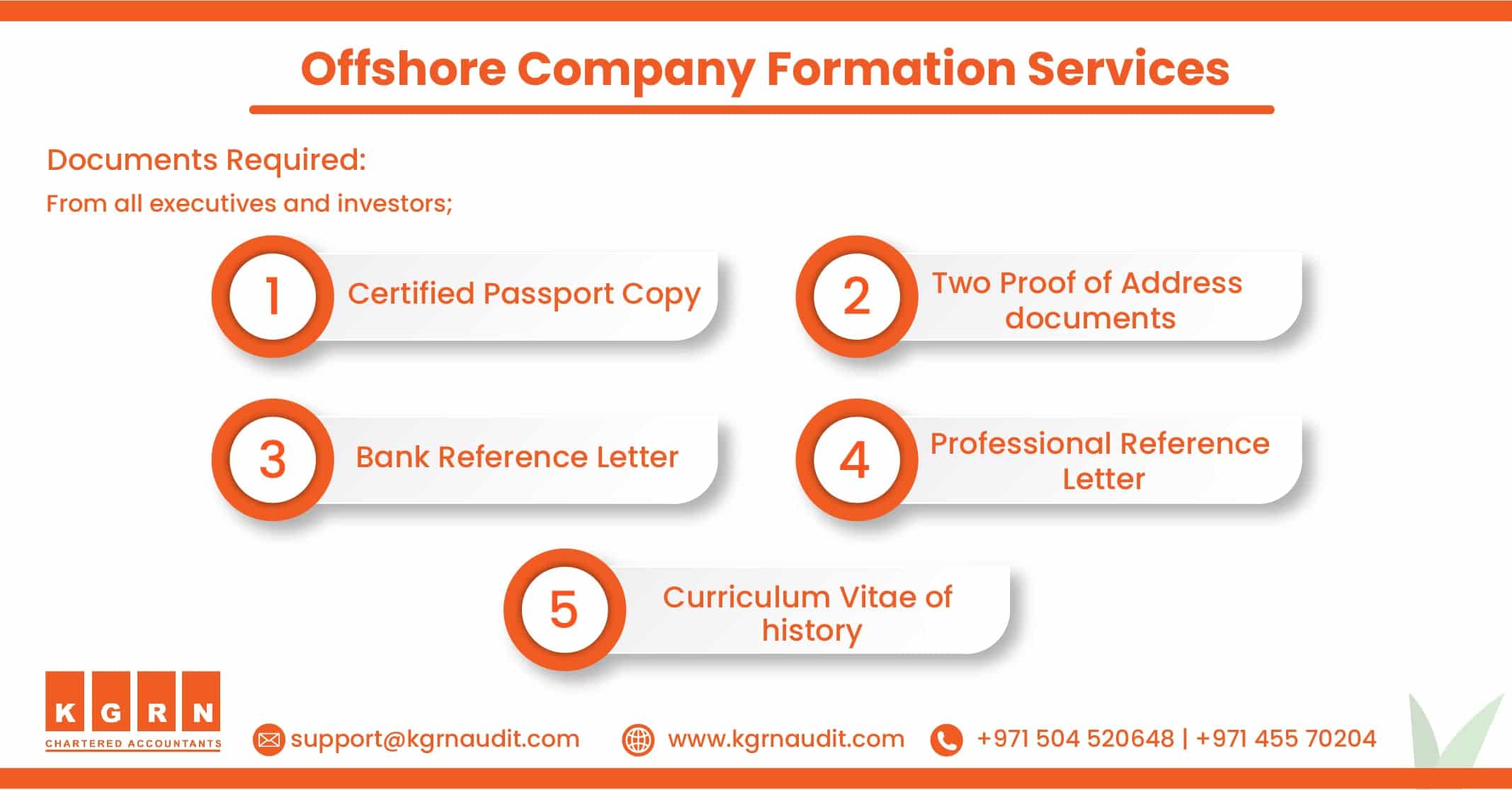The Relevance of Comprehending the Addition Criteria in Company Formation Offshore Processes
Steering via the complexities of overseas Company Formation requires a solid grasp of incorporation requirements. These criteria dictate eligibility, affecting whatever from regulative conformity to tax obligation benefits. Entrepreneurs need to recognize exactly how jurisdictional aspects contribute in this procedure. An absence of awareness can result in costly mistakes. As services check out these waters, the ramifications of their decisions come to be progressively significant. What certain components should they focus on to assure a successful venture?
Specifying Addition Standard for Offshore Company Formation
When considering the formation of an offshore firm, it is necessary to develop clear inclusion criteria that assist the decision-making procedure. These criteria act as a fundamental structure, guaranteeing that prospective candidates for offshore Company Formation fulfill details requirements. Usually, they might incorporate variables such as the company's nature, the geographical area of operations, and the legal frameworks available in various jurisdictions.
Incorporation requirements aid streamline the option procedure, allowing entrepreneurs to concentrate on sensible choices that line up with their critical goals. Furthermore, these requirements can minimize risks connected with compliance, taxation, and regulative problems in foreign markets. By defining these criteria, company owner can efficiently evaluate their motivations for overseas Company Formation and warranty placement with their long-lasting objectives. Ultimately, quality in addition criteria cultivates educated choices, helping with a smoother change right into the overseas service landscape
Key Aspects Affecting Eligibility
Eligibility for overseas Company Formation hinges on several vital factors that form an entrepreneur's ability to effectively browse this facility landscape. First, the individual's financial standing is important, as lots of jurisdictions require evidence of sufficient funding to establish and preserve a business. Second, the nature of the company plays a considerable function; certain sectors may face constraints or added laws in overseas setups. Third, the entrepreneur's residency status can affect eligibility, with some jurisdictions favoring neighborhood citizens or requiring specific licenses for foreign nationals. Furthermore, compliance with anti-money laundering (AML) and know-your-customer (KYC) laws is essential, as failure to meet these criteria can disqualify applicants. The entrepreneur's experience and knowledge in worldwide organization practices may affect their capability to satisfy the essential demands. Understanding these factors is crucial for anyone considering offshore Company Formation.
The Function of Territory in Incorporation Criteria
Territory plays an essential duty in figuring out the inclusion requirements for overseas Company Formation, as different areas impose special regulations and standards. Each territory has its own legal structure that defines that can develop an offshore business, the types of companies allowed, and the requisite paperwork. For example, some jurisdictions might require a minimum capital expense or details credentials for investors and supervisors, while others may have much more tolerant needs.
Additionally, the credibility of a jurisdiction can impact the perceived authenticity of a firm. Regions with well-established lawful systems and robust regulatory structures have a tendency to draw in more serious service ventures, while others might be considered as tax havens or much less trustworthy. Recognizing these administrative subtleties is necessary for potential entrepreneurs, as the picked place can substantially influence operational efficiency, compliance commitments, and overall organization success in the offshore landscape.
Tax Effects and Benefits
Tax obligation implications play a crucial function in overseas Company Formation, influencing both prompt long-term strategies and monetary advantages. Recognizing offered tax rewards and guaranteeing compliance with neighborhood laws are crucial for maximizing economic outcomes. By tactically maneuvering with these components, services can improve their functional performance and sustainability in global markets.
Tax Obligation Incentives Summary
While numerous entrepreneurs take into consideration offshore Company Formation for numerous calculated factors, recognizing the tax obligation incentives entailed is critical for optimizing benefits. Offshore territories frequently supply desirable tax obligation regimes, consisting of reduced or absolutely no business taxes, which can significantly enhance revenue margins. Some areas supply tax vacations or exceptions for specific markets, urging foreign investment. In addition, certain nations might have double taxes treaties, allowing organizations to prevent being exhausted on the very same income in multiple territories. Tax obligation incentives can also prolong to lowered resources gains tax obligations and exemptions for foreign revenue. By thoroughly reviewing these benefits, entrepreneurs can optimize their economic technique and warranty compliance with regional guidelines while properly managing their worldwide tax commitments.

Compliance With Regulations
Offshore Company Formation offers a range of tax rewards, yet comprehending compliance with guidelines is similarly crucial for business owners. Compliance guarantees that companies stick to local regulations and worldwide standards, which can greatly affect their operational success. Failure to comply might result in severe fines, consisting of fines and loss of license. Entrepreneurs need to know the particular tax obligations in their picked jurisdiction, as various regions provide differing benefits and demands. In addition, recognizing coverage criteria and anti-money laundering guidelines is crucial to prevent lawful problems. By focusing on conformity, entrepreneur can take pleasure in the economic benefits of overseas formation while preserving a respectable and authorized existence in the global market.
Long-term Financial Strategies
Developing reliable long-term monetary strategies is vital for business owners thinking about overseas Company Formation, specifically regarding tax obligation implications and advantages. By picking jurisdictions with positive tax regimes, organizations can considerably lower their tax obligation burden and boost capital. Comprehending regional tax obligation regulations, such as exceptions, debts, and deductions, plays an essential role in optimizing economic efficiency. Furthermore, strategies like earnings repatriation and transfer pricing can additionally enhance tax obligation performance. Entrepreneurs need to also take into consideration the potential impact of global tax obligation treaties, which might use advantageous terms for cross-border operations. Inevitably, a well-structured economic approach, aligned with lawful conformity and regulative standards, not only promotes lasting development yet additionally offers a competitive edge in the global industry.
Regulatory Compliance Considerations
Regulatory compliance is an essential variable that has to be carefully navigated during the formation of an offshore firm, as failure to comply with regional regulations can lead to substantial fines. Each territory has its very own collection of rules controling Company Formation, consisting of enrollment requirements, tax obligation responsibilities, and reporting criteria. It is imperative for More Info entrepreneurs to extensively comprehend these guidelines to ensure their operations straighten with legal expectations.

Strategic Business Preparation for Offshore Ventures

Specifying Target Audience
Determining the target market is a crucial action in the calculated organization preparation procedure for offshore ventures. This procedure includes evaluating potential consumers and their choices, which notifies product growth and advertising and marketing approaches. By understanding group elements such as earnings, area, and age, businesses can tailor their offerings to fulfill certain demands. In addition, reviewing market fads and customer habits aids in identifying gaps out there that the endeavor can make use of. Effective segmentation of the target audience improves the capacity for success by ensuring that sources are alloted effectively. Eventually, a well-defined target market promotes a concentrated approach, improving the likelihood of attaining competitive advantage and long-lasting sustainability in the offshore service landscape.
Compliance With Rules

While steering with the intricacies of overseas Company Formation, compliance with regulations becomes a vital factor in making sure the endeavor's success. Following neighborhood regulations and international standards not only reduces lawful risks but also boosts the integrity of the company. Companies should be alert relating to tax obligations, licensing demands, and reporting requirements details to their selected territory. Moreover, understanding anti-money laundering (AML) methods and know-your-customer (KYC) policies is essential for preserving operational honesty. Failure to conform can result in penalties, click this link reputational damage, or perhaps dissolution of the company. As a result, critical service planning must include extensive compliance checks to guard against possible mistakes, eventually establishing a solid structure for growth and sustainability in the offshore sector.
Usual Pitfalls to Prevent in Offshore Company Formation
Lots of business owners neglect essential details when creating an overseas company, which can lead to considerable lawful and financial effects. One common challenge is failing to carry out thorough research on jurisdictional laws. Each overseas area has special legislations that can influence service procedures. Entrepreneurs commonly undervalue the value of choosing the ideal service framework, which can influence liability and tax. Furthermore, overlooking to develop a reliable local existence, such as a signed up agent, can lead to complications during regulative compliance.
An additional blunder involves insufficient understanding of financial requirements, which can cause account access concerns. Business owners may likewise forget the value of keeping accurate documents, which is essential for transparency and compliance. Insufficient lawful counsel can result in misconception of the needs, revealing the company to threats. By preventing these risks, business owners can boost their offshore Company Formation experience and warranty long-term success.
Regularly Asked Concerns
Can Foreign People Type Offshore Firms Without Neighborhood Partnerships?
The concern of whether international individuals can create offshore companies without neighborhood partnerships is facility. Typically, several jurisdictions allow this, yet specific laws and needs might vary substantially relying on the nation selected for unification.
What Paperwork Is Required for Offshore Company Formation?
The documents needed for offshore Company Formation generally includes identification proof, residential address verification, service strategy, bank referral letters, and often extra regulatory kinds, relying on the jurisdiction's specific legal requirements and firm framework selected. company formation offshore.
Exist Age Restrictions for Offshore Company Creators?
Age limitations for offshore firm creators vary by territory. Usually, people must be at the very least 18 years of ages to legally establish a firm. Some regions might have additional requirements or specific provisions relating to age qualification.
The length of time Does the Offshore Company Formation Process Normally Take?
The offshore Company Formation process commonly takes anywhere from a couple of days to numerous weeks. Factors affecting duration include territory laws, needed documentation, and the effectiveness of solution providers associated with the enrollment process.
Can I Change My Business's Incorporation Criteria After Development?
If changing a company's inclusion criteria post-formation was possible, the private questioned. Usually, changes can be made, but this typically requires adherence to details legal treatments and conformity with the policies of the jurisdiction involved.
By defining these standards, business proprietors can properly examine their inspirations for overseas Company Formation and guarantee alignment with their long-lasting objectives. Each jurisdiction has its very own legal framework that defines who can develop an overseas company, the types of organizations enabled, and the requisite documentation. While numerous entrepreneurs think about offshore Company Formation for various tactical reasons, understanding the tax incentives included is important for optimizing advantages. Offshore Company Formation offers a variety of tax incentives, yet recognizing compliance with laws is equally important for entrepreneurs. Establishing effective long-lasting economic strategies is critical for entrepreneurs thinking about offshore Company Formation, specifically pertaining to tax implications and advantages.